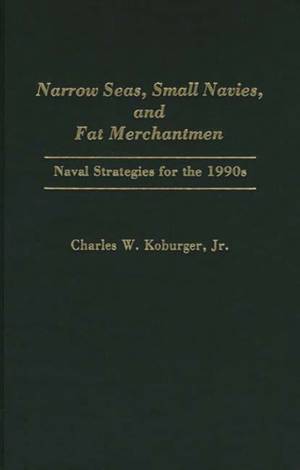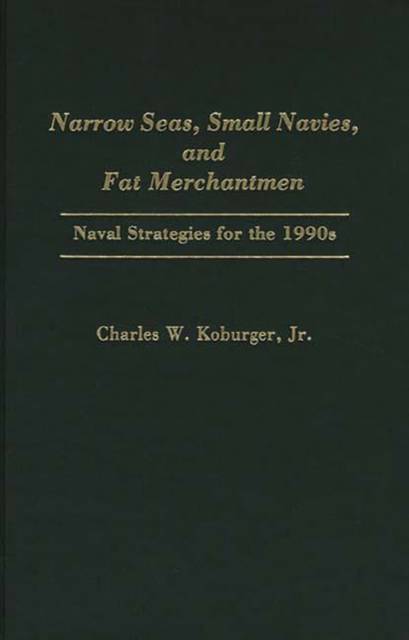
- Afhalen na 1 uur in een winkel met voorraad
- Gratis thuislevering in België vanaf € 30
- Ruim aanbod met 7 miljoen producten
- Afhalen na 1 uur in een winkel met voorraad
- Gratis thuislevering in België vanaf € 30
- Ruim aanbod met 7 miljoen producten
Narrow Seas, Small Navies, and Fat Merchantmen
Naval Strategies for the 1990s
Charles W KoburgerOmschrijving
According to Charles W. Koburger, Jr., the naval world has been turned upside down and the United States is not prepared for it. Most naval thought has been written for large blue water ships isolated on the open sea. But low-intensity conflicts--insurgencies, counterinsurgencies, terrorism, regional hostilities--smolder and flare around the world. Naval war is now frequently fought in narrow landbound seas where everything and everybody is involved. Modern technology, with its increased firepower, has given smaller ships, and thereby smaller navies, an impact far out of proportion to their size, particularly in these narrow seas. Koburger's thesis: the growing importance of both narrow seas and lesser navies has caused a major shift in the balance of sea power. His conclusion: the United States must develop tactics and weapons that will win wars in the narrow seas.
Narrow Seas, Small Navies, and Fat Merchantmen examines the impact of these small navies on the ships, planes, and tactics of big navies. Presenting a clear image of these lesser navies, Koburger also provides definitions of common naval concepts in nontechnical terms. Divided into three parts this volume first looks at small navies, then describes their characteristic operations, and concludes by outlining implications of this naval revolution for United States' maritime strategy. Past naval failures in the narrow seas serve to highlight the politico-military value of Koburger's study. It will be of great use to military tacticians, naval strategists, and students of modern military strategy.Specificaties
Betrokkenen
- Auteur(s):
- Uitgeverij:
Inhoud
- Aantal bladzijden:
- 184
- Taal:
- Engels
Eigenschappen
- Productcode (EAN):
- 9780275935573
- Verschijningsdatum:
- 30/12/1990
- Uitvoering:
- Hardcover
- Formaat:
- Genaaid
- Afmetingen:
- 147 mm x 216 mm
- Gewicht:
- 399 g

Alleen bij Standaard Boekhandel
Beoordelingen
We publiceren alleen reviews die voldoen aan de voorwaarden voor reviews. Bekijk onze voorwaarden voor reviews.











